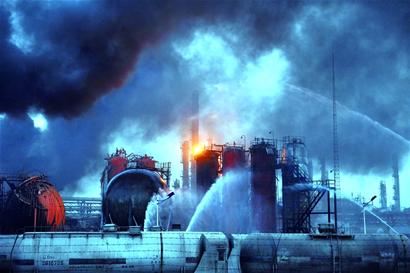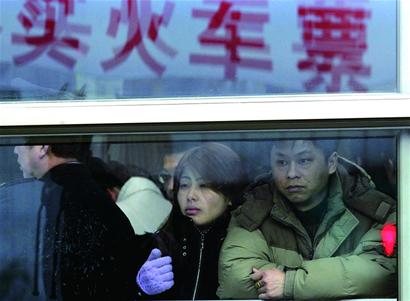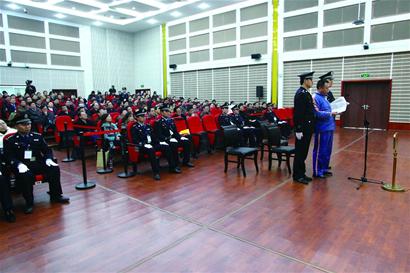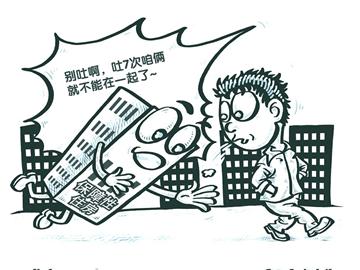

Highlights from the EO print edition, issue no. 453, January 18, 2010
A Shift in Property Market Policy Settings
Cover
~ The policy measures that China's central government will use to control fluctuations in the real estate market during 2010 are gradually becoming clearer.
~ On January 13, six ministries and commissions jointly held a press conference to provide further details about how they planned to implement a series of major policy adjustments aimed at curbing booming property prices that had been announced by the central government over the preceding month.
~ The central government says it plans to guarantee adequate housing supply in two ways: by increasing land supply and by curbing speculative property investment. House prices, however, will continue to be determined by the market.
~ The EO learned that starting from the 4th quarter of 2009, the Ministry of Housing and Urban-Rural Development (MHURD) launched a series of investigations. However, unlike in previous years, the various associations and organizations that represent the interests of property developers were not invited to take part.
~ According to various informed sources, neither property developers nor the China Real Estate Chamber of Commerce (http://www.chinahouse.info/old/EN/Overview.asp) or the China Real Estate Association participated in the MHURD-led research and investigation.
Original article: [Chinese]
A Look at What’s Behind the Recent Energy Shortages in China
News, page 4
~ The Chinese government continues to search for ways to solve the nation's increasingly serious energy supply problems.
~ Over the past 22 years, since major reform to the country’s energy sector took effect and market mechanisms were gradually introduced, there’s been a never-ending battle between the central government and the monopoly energy giants that dominate the sector.
~ As price controls were gradually released, the control of energy resources has come to be dominated by these huge companies.
~ Due to market reforms, the government currently has limited ability to reshape the country's energy industry, and some wonder whether the sector will continue to be dominated by the market or if administrative power will come to play a greater role.
Original Article: [Chinese]
Will China Continue Down the Same Old Path to Growth?
News, page 5
~ China's economic indicators are starting to strengthen. Imports and exports registered a year-on-year increase of 56 % and 17.7% respectively and the CPI, a key measure of inflation, turned positive in November after sinking into negative territory over the preceding ten months.
~ Economists interviewed by the EO predict that the country's producer price index (PPI), another gauge of inflation at the wholesale level, will turn positive in December.
~ Meanwhile, they’re also optimistic about China's growth in 2010, with some speculating that China's GDP could grow at faster than 8% in 2010, while others aim even higher and predict that growth could come in at between 10.5% and 11.9%.
~ Despite recent improvements, many economists remain concerned that the economy may be allowed to return to the old growth model - namely heavy reliance on investment and exports.
Original Article: [Chinese]
Macroeconomic Policies Likely to Return to Normal in 2010
News, Page 7
~ The Economic Observer has just released its latest quarterly report, featuring the forecast of 33 influential Chinese economists on the outlook for the Chinese economy and economic policies for 2010.
~ 64% of the economists surveyed predict a GDP growth rate of somewhere between 9% and 10% in 2010 and two thirds of them said that economic growth would peak in the first quarter.
~ As the Chinese policy makers begin to exit from the stimulus policy settings, 89% of those surveyed believe that the country will not increase interest rates before the US does.
~ According to those surveyed, the biggest threats to the Chinese economy in 2010 are asset bubbles, followed by problems with overcapacity and inflation.
Original Article: [Chinese] 
Lanzhou Explosion Reveals Hidden Dangers of China’s Chemical Industry
Nation, page 9
~ Six people were killed and another six injured after an explosion at a chemical plant explosion in Lanzhou, capital of China's northwest Gansu province, on the afternoon of January 7.
~ The incident forced 3,000 villagers, who lived close to the plant, to take refuge in the hall of the Xigu District Government.
~ The plant is operated by Lanzhou Chemical Company under China National Petroleum Corporation, the country's largest oil and gas producer.
~ Many Chinese provinces and cities, especially those in under-developed regions similar to Gansu seek to promote economic growth by developing heavy chemical industries.
~ In 2006, the Gansu provincial government issued its eleventh five-year plan, outlining how it planned to enhance the petrochemical industry's role in the province's economic development.
~ Public statistics showed that excluding centrally-owned enterprises, there were now 1,834 registered chemical companies in Lanzhou. Most plants were built along the banks of rivers upstream from the capital or in areas in which any gas leakage would be swept by wind towards the city.
~ Besides the dangers posed by potential explosions, poisonous pollutants produced by the petrochemical industry not only pollute the environment but also harm the health of residents who live near the chemical plant.
~ Six serious incidents relating to petrochemical processing have occurred in Lanzhou since 2002, causing the deaths of 10 people and injuring 32 others. Another 45 people had fallen sick due to exposure to chemical pollutants.
Original Article: [Chinese]
Spring Festival Rush: Test of the Country’s Rail System
Nation, page 11 and 12
~ This Chinese New Year, 210 million people are expected to travel by rail between January 30 and March 10.
~ To solve the difficulty of buying a train ticket during the period, the Ministry of Railways has selected Chengdu, the capital city of Sichuan Province, as one among many of the cities to piloting a new system that requires all passengers to show their ID cards when buying tickets.
~ The new system aims to crack down on scalpers who are able to buy tickets in bulk and then sell them at exorbitant prices during the rush period.
~ The other cities involved in the scheme include Guangzhou, Shenzhen, Dongguan and eight other cities in the period before Spring Festival and Changsha, Luoyang, Linzhou and 17 other cities in the new year.
According to an unnamed professor from the South China University of Technology\'s School of Civil Engineering and Transport,the measures will be ineffective unless the government does something to prevent railway employees from selling one tickets in bulk to ticket scalpers.
~ Medical experts are also worried that the large amount of people travelling over Spring Festival has the potential to lead to the futher spread of A/H1N1 influenza across the country.
Original Article: [Chinese] and [Chinese] 
Lawyer Jailed for Falsifying Evidence in High-profile Chongqing Criminal Gang Case
Nation, page 12
~ The swiftness and efficiency of the Chinese legal system was definitely on display when it came to the case of Li Zhuang, from the day the Beijing lawyer was arrested (Dec 13) to the day of his trial on charges of falsifying evidence and inciting others to bear false witness (Dec 30) there were only 28 days.
~ The verdict was handed down by a court in Chongqing’s Jiangbei district on Jan.8, with Li receiving a two and a half year jail term.
~ The charges were based on accusations leveled by former client, Gong Gangmo, who himself has been charged with the crimes of murder, drug trafficking, organized crime and gun-related charges. Gong’s case is one of the high-profile criminal gang or “Heishehui” trials that started to be held in Chongqing in the later part of 2009.
~ The verdict has drawn warnings from lawyers worried the government is trampling rules in its zeal for convictions.
~ Li's lawyer Gao Zicheng told reporters that he believed Li would appeal against the ruling. 
New Civic Virtue Points System Introduced at Guangzhou's Low-income Residential Housing Estates
Nation, page 15
~ Guangzhou’s municipal government introduced provisional regulations aimed at improving “social order” within the city’s low-income housing estates over recent weeks.
~ The regulations list 29 different kinds of misconduct in order of their seriousness and also include a matching penalty which is based on a points system that ranges from a deduction of 3 points for a comparatively minor infringement, to a loss of 20 points for more serious misbehaviour.
~ If a tenant residing in the city’s low-income residential housing estate loses more than a total of 20 points over two years, they will lose the right to rent the subsidized accommodation. Furthermore, they‘ll also be prevented from applying for government housing for the following five years.
~ The new regulations also stipulate that if a tenant is found to sublet the house to others, be behind in their rent by more than three months, or submit their rent late more than 6 times, he or she will also be evicted and barred from the government-subsidized housing.
~ The regulation is widely opposed by the public. Some critics have said that the regulations "discriminate against the poor."
~ Wang Ze, former member of the standing committee of Guangzhou Municipal People's Congress, believes that the government shouldn’t make detailed regulations targeted at violations of “civic virtue,” but instead approach the problem of anti-social behavior via detailing provisions in the property management’s rental contract.
Original Article: [Chinese]
New Accounting Standards Shake Up Insurance Sector
Market, page 20
~ As the Ministry of Finance has required Chinese insurance companies to adopt new accounting standards when preparing their annual reports, the ranking of Chinese insurance giants is likely to change.
~ Currently, China Life, Ping An Insurance and CCPI Life are the three leading insurance companies in terms of size. But after the new accounting standards take effect, it’s likely that New China Life will take CCPI Life third-place position.
Original Article: [Chinese]
Suspicions Delay Company’s Listing on ChiNext
Market, page 21
Initially a candidate to list on China’s new growth enterprise board, ChiNext, the company Spearhead (华谊嘉信huá yì jiā xìn) had to wait while another 28 companies went ahead and listed on the new board in September 2009,
~ Despite being approved to list by ChiNext’s own investigative committee, Spearhead is still waiting on approval from China Securities Regulatory Commission (CSRC).
~ Suspicions of false reporting of assets, illegal share holdings and even secret shares being held by intermediaries are currently being investigated.
Original Article: [Chinese]
Chinese Products to Disappear from Shelves of Costco’s British Stores
Corporation, page 27
~ The United States' largest membership-based warehouse-style supermarket chain, Costco, has canceled orders for Chinese goods in its British stores as of January 1, 2010.
~ Canceled orders are likely to be filled by other Southeast Asian producers in Vietnam and Malaysia.
~ Costco currently has 327 warehouse outlets spread over 7 countries and regions, but has not yet entered any developing countries.
~ Costco is considered by many to be Wal-Mart's most feared competitor.
~ According to one Guangzhou supplier, the cancelation of orders for Chinese products may have been caused by the fact that most of the Chinese manufactures were unable to lower prices given their own rising labor and material costs.
Original Article: [Chinese]

